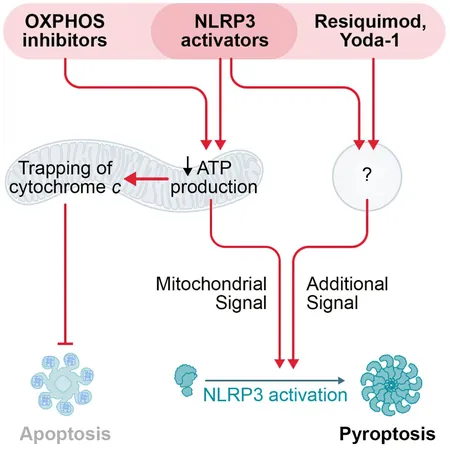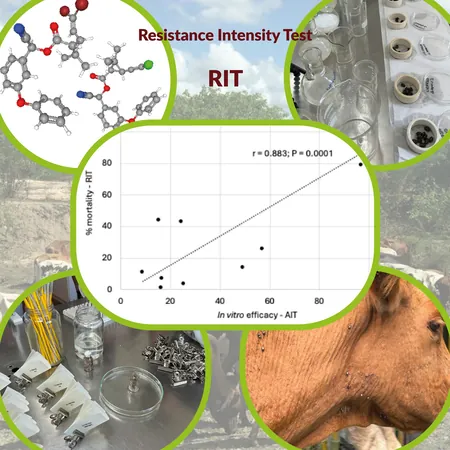
Breakthrough Discovery on Mitochondria Opens New Doors for Treating Inflammatory Diseases
2024-11-26
Author: Wei Ling
Breakthrough Discovery on Mitochondria Opens New Doors for Treating Inflammatory Diseases
In an exciting development for medical science, researchers at the University of Freiburg's Faculty of Medicine have unveiled a crucial mitochondrial mechanism that plays a pivotal role in determining a cell's fate under stress. This groundbreaking study, published in the esteemed journal "Immunity," reveals how mitochondria influence whether a cell undergoes apoptosis—a form of programmed cell death—or activates an inflammatory response.
Prof. Dr. Olaf Groß, the lead scientist in the study from the Institute of Neuropathology, describes mitochondria as "a kind of decision-making aid," illustrating their critical role in balancing cell protection with necessary immune responses. "Our findings shed light on how the body maintains this delicate equilibrium, potentially guiding new treatments for inflammatory diseases," he adds.
The Gateway to Cellular Survival or Inflammation
At the heart of cellular activity is adenosine triphosphate (ATP), the universal energy source. The research highlights that a significant drop in ATP levels within the mitochondria leads to a crucial protein known as cytochrome c becoming trapped within them. This disruption prevents the cells from receiving external signals to initiate death, instead spurring them to trigger mechanisms that prompt an inflammatory response. This reaction serves to alert tissue to potential threats, effectively mobilizing the body’s defenses.
An interesting facet of this discovery is the identification of NLRP3, a specialized "sensor" located within cells. When mitochondria halt energy production, this sensor becomes activated. However, for NLRP3 to trigger its inflammatory response, it requires a second signal from other cellular regions. This "two-signal mechanism" acts as a safeguard, ensuring that inflammation only arises under severe danger, thereby protecting healthy cells from collateral damage.
Implications for Inflammatory Diseases
The implications of this research are profound, particularly for treatment approaches to numerous diseases where inflammation is a key factor, such as gout, type 2 diabetes, and severe cases of COVID-19. The newfound understanding may pave the way for targeted therapies that can modulate the body's inflammatory response, potentially leading to innovative treatments that improve patient outcomes.
As the scientific community continues to explore the intricate relationship between mitochondria and cellular health, this discovery stands as a testament to the potential for unlocking new strategies to combat inflammatory diseases, offering hope to millions affected worldwide. Scientists are now looking into how this mechanism can be harnessed in clinical settings, promising a future where managing inflammation could be more precise and effective.
Stay tuned as we keep you updated on this thrilling journey in biomedical research!



 Brasil (PT)
Brasil (PT)
 Canada (EN)
Canada (EN)
 Chile (ES)
Chile (ES)
 España (ES)
España (ES)
 France (FR)
France (FR)
 Hong Kong (EN)
Hong Kong (EN)
 Italia (IT)
Italia (IT)
 日本 (JA)
日本 (JA)
 Magyarország (HU)
Magyarország (HU)
 Norge (NO)
Norge (NO)
 Polska (PL)
Polska (PL)
 Schweiz (DE)
Schweiz (DE)
 Singapore (EN)
Singapore (EN)
 Sverige (SV)
Sverige (SV)
 Suomi (FI)
Suomi (FI)
 Türkiye (TR)
Türkiye (TR)